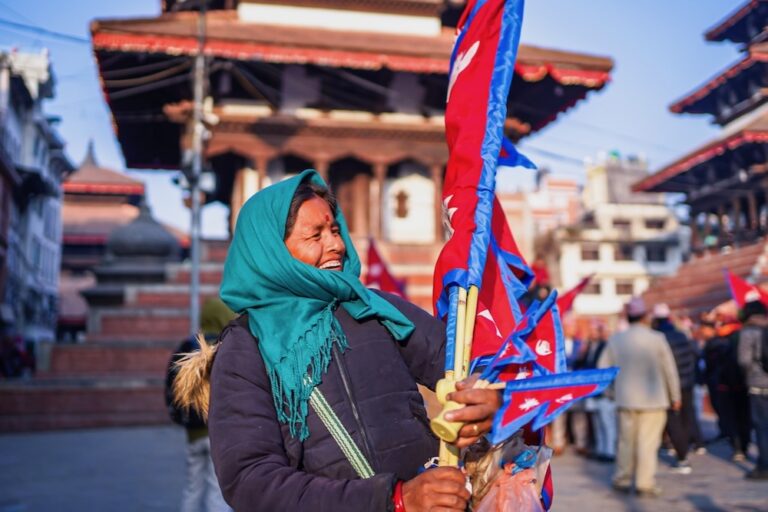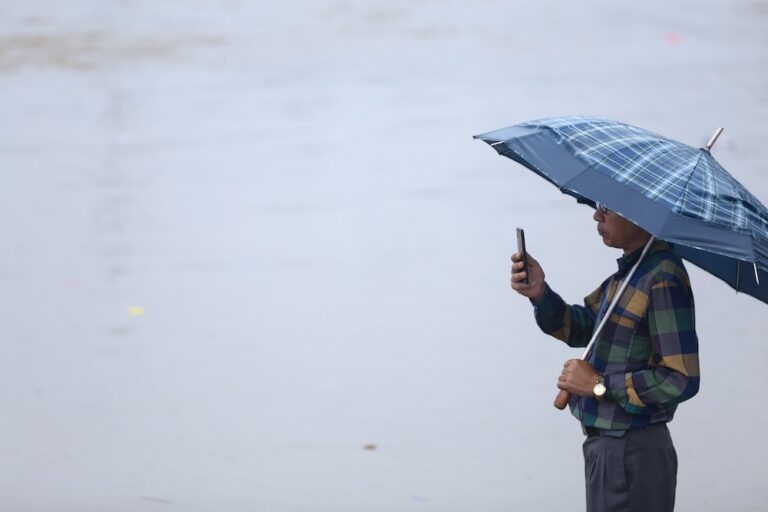(CEHURDES/IFEX) – The following is a 28 November 2002 CEHURDES press statement: NEPAL JOURNALISTS, RIGHTS ACTIVISTS FILE COMPENSATION CASES Kathmandu, Nov. 28 – A total of 16 journalists and human rights activists filed separate cases against the government at the district court of Kathmandu on Thursday, seeking compensation for their “illegal” detention during the nine-month […]
(CEHURDES/IFEX) – The following is a 28 November 2002 CEHURDES press statement:
NEPAL JOURNALISTS, RIGHTS ACTIVISTS FILE COMPENSATION CASES
Kathmandu, Nov. 28 – A total of 16 journalists and human rights activists filed separate cases against the government at the district court of Kathmandu on Thursday, seeking compensation for their “illegal” detention during the nine-month state of emergency that came to an end on August 28. They also demanded action against the perpetrators. The court can order perpetrators (in this case police and army officials) to face departmental action, if found guilty.
Fourteen journalists and two human rights activists have demanded compensation of up to Rs 100,000 each, in accordance with the six-year-old Act Relating to Torture and Compensation, 2053 B. S. “We want to set a precedent that the state must bear responsibility for violating people’s fundamental rights even during the state of emergency,” said Shyam Shrestha, editor of the pro-leftist Mulyankan monthly, who was detained for nearly one month during the emergency.
The recently-formed Press Freedom Grand Jury Nepal and Center for Human Rights and Democratic Studies (CEHURDES) provided legal support to the victim journalists and rights activists to file the cases.
The Act Relating to Torture and Compensation 2053 B. S. includes a provision for compensation of a maximum Rs 100,000 to be paid to victims by the state. Such a case has to be filed within three months of the expiry of the state of emergency (if the person was victimized during the state of emergency).
The court has already asked the government to pay a compensation of Rs 100,000 to at least one victim of torture, according to lawyers. But this is the first time that a huge number of journalists and rights activists have come together to seek compensation from the state.
“The legal battle had become urgent, to establish that the state had violated people’s rights during the emergency,” said advocate Tikaram Bhattarai, who leads the legal consultation team of the Press Freedom Grand Jury Nepal. Nearly 150 journalists were detained by the government during the state of emergency, of which over 20 are still in prison.
Those filing cases on Thursday include the editor of Saanghu weekly, Gopal Budhathoki, the chief editor of Mulyankan monthly, Shyam Shrestha, Space Time daily reporter Anuradha Poudyal, Rajdhani daily reporter Rewat Sapkota, Janadesh weekly reporter Dipak Sapkota, Janadesh staff member Dipendra Rokaya, the executive editor of Dishabodh monthly, Iswor Chandra Gyawali, the joint editor of Dishabodh monthly, Manarishi Dhital, the secretary of the Federation of Nepalese Journalists’ Kathmandu branch, Dhan Bahadur Magar, the manager of “Kalam” literary magazine, Bandhudev Pandey, the executive chairman of Sriujanshil Prakashan, Bijay Raj Acharya, the editor and publisher of Eikyabaddhata monthly, Mina Sharma Tiwari, another editor of the same monthly, Binod Tiwari, journalist Ratna Prasad Mainali and human rights activists Dr. Mahesh Maskey and Pramod Kafle.


